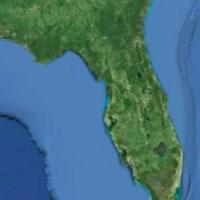Let's get rid of "la" - "THE" definite article in Esperanto
ca, kivuye
Ubutumwa 65
ururimi: English
erinja (Kwerekana umwidondoro) 8 Rusama 2010 16:33:55
Huaskar:I've read that "unu muso" means not just one mouse but rather: "one special mouse, or one mouse which I will not mention here, but which I well know, or which is well known.Yes, this is correct.
But "unu" can also be used for emphasis.
For example, "You can bring a towel" suggests that you can bring one towel, or more if you want. "You can bring one towel" suggests that you can bring one towel, but you can't bring two or three.
I would say that it's the same in Esperanto, with "Vi povas porti tukon" and "Vi povas porti unu tukon"
Huaskar (Kwerekana umwidondoro) 8 Rusama 2010 16:46:15
glavkos:......k1attack:Esperanto doesn't have "an" indefinite article, but I think "the" definite article - "la" - should also be removed from Esperanto. It's needless!Why not to remove all the parts of speech and just stay silent ?
What do you think?) This sound great too..
I don't think that such polemic comments are necessary or useful, whatever the proposal might be.
For precision's sake I like to keep "la". However, according to the rules of esperanto created by Zamenhof, beginners who have problems with "la" can ignore this for some time. I think that this is a good idea. If one does not understand la's use, he may drop it till he knows how to use it.
milupo (Kwerekana umwidondoro) 8 Rusama 2010 16:50:45
Huaskar:No, unu is a numeral (Zahlwort) in Esperanto and only a numeral! It's never used as an indefinite article in contrast to German does. Unu muso always means one mouse and not two, not three, not four and so on. Muso alone means it is about a mouse and, for instance, not about a cat. What you mean, that there is a mouse or not, is expressed in Esperanto: Estas muso, or Ne estas muso. But you also can say in Esperanto: Estas unu muso, or Ne estas unu muso. In the first 2 phrases you say that there is a mouse or there is not a mouse. It is here about a mouse which is there or not there, and not a cat. In the last 2 phrases is expressed that there is one mouse or that there is not one mouse, and not two, three or four.
?????
I've read that "unu moso" means not just one mouse but rather: "one special mouse, or one mouse which I will not mention here, but which I well know, or which is well known. So it's Rather like german "eine gewisse Maus". It's not stressing that there is a mouse, in contrast to the lack of mouses, but instead that I will not mention the name of the mouse, or not pointing at this entity(that mouse over there)
At least I read this...
Bonvolu korrect me if thats wrong....
milupo (Kwerekana umwidondoro) 8 Rusama 2010 16:58:20
erinja:No, it is not the same. If you say "vi povas porti tukon" can also express that you can bring another thing, for instance, soap. But if you say "Vi povas porti unu tukon" it implicits that you can bring one towel only and not more towels or other things.
I would say that it's the same in Esperanto, with "Vi povas porti tukon" and "Vi povas porti unu tukon"
tommjames (Kwerekana umwidondoro) 8 Rusama 2010 17:02:11
milupo:unu is a numeral (Zahlwort) in Esperanto and only a numeral!This is not correct, "unu" has other uses besides number.
http://bertilow.com/pmeg/gramatiko/nombroj/vorte...
Rikat (Kwerekana umwidondoro) 8 Rusama 2010 18:42:13
The original poster wants to abolish the definite article but perhaps another person would rather add an indefinite article. And so forth. The possible changes are endless.
qwertz (Kwerekana umwidondoro) 8 Rusama 2010 18:57:52
The Automatic: "The monster" 0:45min
"What's that coming over the hill?
Is it a monster? Is it a monster?"
Using "the monster" would give that another meaning. "Is it a monster" means "Is that kind of alien which is coming over the hill a monster?", isn't it? In that case I ask for the species.
Btw., would be a kind of idea to replace the "ĉevalo" of Stano Marcek learning course with a "monster". It's a "besto", too. So that should be fine for the concept. And it would attract more adult learners.

Roberto12 (Kwerekana umwidondoro) 8 Rusama 2010 19:22:33
Huaskar:For that I would say iu muso.milupo:?????k1attack:In Esperanto, there's no indefinite article because the word "muso" automatically tells us that it's talking about ONE mouse.But, it's better to say unu muso to express that there is one mouse only.
I've read that "unu moso" means not just one mouse but rather: "one special mouse, or one mouse which I will not mention here, but which I well know, or which is well known. So it's Rather like german "eine gewisse Maus". It's not stressing that there is a mouse, in contrast to the lack of mouses, but instead that I will not mention the name of the mouse, or not pointing at this entity(that mouse over there)
At least I read this...
Bonvolu korrect me if thats wrong....
k1attack (Kwerekana umwidondoro) 8 Rusama 2010 20:01:05
"muso" means "a mouse" rather than "the mouse", because there's no "la". In English, we can't use the word "mouse" on its own, but in Esperanto, if it doesn't have a definite article, you can tell that it must be indefinite.
"muso" automatically tells you that there's only ONE mouse! Otherwise, "musoj" would be used.
Starkman (Kwerekana umwidondoro) 8 Rusama 2010 20:58:59
milupo:milupo,erinja:No, it is not the same. If you say "vi povas porti tukon" can also express that you can bring another thing, for instance, soap. But if you say "Vi povas porti unu tukon" it implicits that you can bring one towel only and not more towels or other things.
I would say that it's the same in Esperanto, with "Vi povas porti tukon" and "Vi povas porti unu tukon"
Are you saying that Esperanto itself, within the structure of the grammar, makes it impossible that "Vi povas porti unu tukon" only implies that you can bring one towel only and not more towels or other things?
If that is not what Esperanto dictates, than the logic here is faulty; just because I tell you that you may bring only one towel, I have not addressed anything else by implication that you may bring. It may be that you can also bring one bar of soap, but unless you ask me, or unless we talk specifically about other items than towels, it cannot be assumed that one towel and nothing else may be brought.
Further, as an English speaker, I can't even imagine what it would be like to not have the definite article "the." I mean, one would constantly have to explain just what exactly is meant...kind of like the lack of a meaning for "everybody" when "you" is used; is it I or others or some or all that is meant?
Anyway, at least from an English native tongue perspective, I am finding the definite article VERY useful and necessary while studying Esperanto. And that is THE fact of THE matter (not a fact of any ol' manner, but the one and only fact of...ah, forget it. I lost my train of thought!)
Starkman




